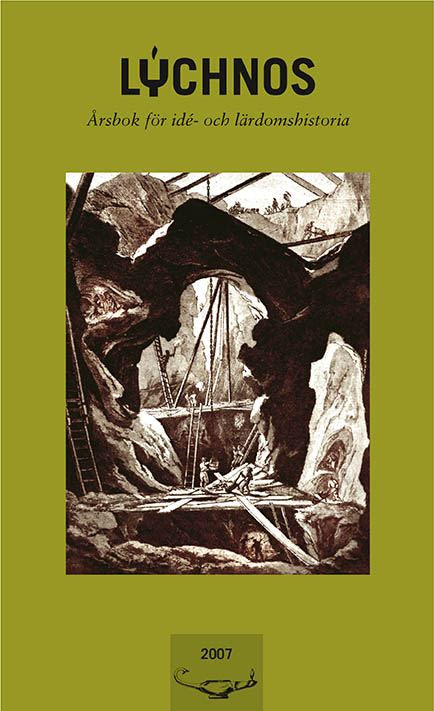The geography of learning, utility, and decline
Johann Beckmann’s mental map of eighteenth-century Sweden
Abstract
The aim of this article is to analyze the representations of Sweden articulated by the Hanoverian traveller Johann Beckmann – later to become professor in Göttingen – during his one-year stay in Uppsala and Stockholm, 1765– 1766. Starting out with a positive view of Sweden as a prominent land of learning, Beckmann's apodemically informed but far from neutral narrative ends on a fairly dark note, describing how Swedish science and economics have decidedly fallen from grace. The Swedes are pictured as arrogant and jealous, as a people, which have gotten most of what it knows from Germany but refuses to acknowledge its debt and treats German entrepreneurs in a disgraceful, exploitative manner.
To some extent, Beckmann's ambivalent representations can be explained by his disappointment in the internationally renowned botanist Carolus Linnaeus (Carl von Linné), who failed to satisfy the expectations of his visitor. Moreover, Beckmann spent much time with the aged botanical reformer, who had at this point initiated a collection of gloomy exempla, Nemesis divina, expressing a fairly bleak view of the human – and Swedish – condition. Another explanation for Beckmann's negativity can be located in earlier and contemporary travel narratives, where Sweden was dismissed or treated in an equivocal way. In addition, only two years had passed since a theological compendium of another Göttingen member of the republic of letters, Johann David Michaelis, was banned in Sweden. A fourth, potentially more important reason for Beckmann's narrative, however, can be found in his resentful commentary upon the allegedly ungrateful attitude of Swedes towards Germans. This contrasting of Germans against Swedes reinforced the German sense of self and superiority in accordance with a self-congratulatory ”political patriotism”, as oppos- ed to a more cosmopolitan but equally ideal-typical ”social patriotism”, where the foreign other is predominantly used to inspire improvements of the observer's patria.
Downloads
Published
Issue
Section
License
This work is licensed under a Creative Commons Attribution 4.0 International License. The copyright for the work published in Lychnos remains with the authors.


